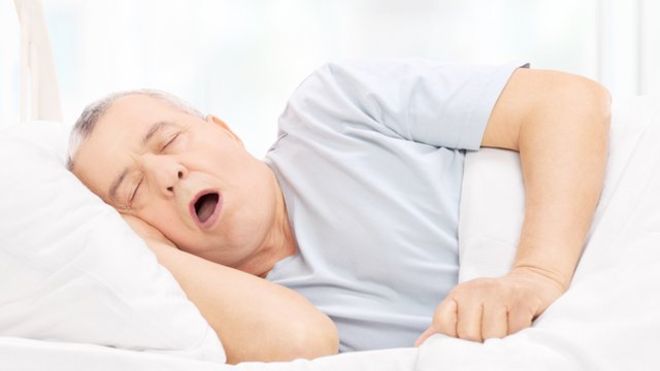LONDON (Web Desk) – People who have difficulty breathing while asleep are more likely to develop memory problems early on, a study in the journal Neurology suggests.
US scientists checked medical databases involving 2,400 people aged over 55.
Those who said they suffered from sleep apnoea reported problems with their memory and thinking skills a decade earlier than people who slept well.
Further work is under way to clarify the link. It adds to growing evidence poor sleep is associated with illness.
Scientists involved in a large Alzheimer’s research project in the United States looked specifically at volunteers who said they experienced sleep apnoea.
In this condition the muscles around the throat relax and can block the airways, making it hard to breathe.
Patients often snore loudly and wake up several times a night.
Researchers are concerned in some cases this could mean vital organs – including the brain – are at risk of not getting the oxygen they require.
Scientists found people with the condition were more likely to report memory and thinking problems in their late 70s, on average 10 years before those who breathed easily while asleep.
But the small number of patients who received treatment – using a continuous positive airway pressure (CPAP) machine that keeps the airways open and forces air in – did not report memory problems early on.
Researchers are now conducting larger studies to see whether CPAP therapy could help preserve memory and thinking power.
Commenting on the paper, Dr Simon Ridley, of Alzheimer’s Research UK, said: “This adds to growing evidence that disrupted breathing during sleep could be a risk factor for memory and thinking decline in older age, but it doesn’t prove one causes the other.
“A good supply of oxygen to the brain is vital to keep it healthy, and it is interesting to see that treatment of sleep apnoea was associated with a trend towards later memory and thinking problems.”
Dr Doug Brown, at the charity the Alzheimer’s Society, added: “Several earlier studies have shown that the quantity and quality of sleep we get can have an impact on our cognitive health.
“As sleeping disorders are common among the elderly, it is vital that we see more research into this area.”














